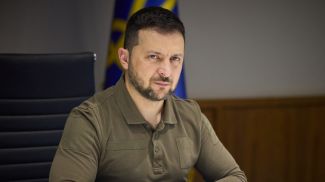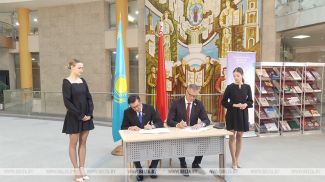MINSK, 30 March (BelTA) – Cooperation with Russian partners helped Belarus reduce the price for targeted therapy by 3-4 times, Chairman of the Board of Directors of Nativita Company Aleksei Sychev told the media, BelTA has learned.
Nativita was the first company in Belarus to register targeted drugs, primarily monoclonal antibodies. This became possible thanks to cooperation with Russian counterparts, Biocad. The first stage of technology transfer is underway. This is the packaging and quality control of the product in Belarus. Their appearance on the domestic market has created a competitive environment, which significantly affected the cost of such drugs. As a result, their accessibility for patients has greatly improved. “If earlier their accessibility was estimated at the level of 30-40%, today this figure surpasses 95% for those cancer patients who need these drugs,” said Aleksei Sychev.
When asked about the possibility of producing targeted drugs of a full cycle, Aleksei Sychev stated that the issue of a more in-depth technology transfer is under consideration. However, it is necessary to assess economic prospects. “If it makes sense to invest in a more in-depth stage of production, we, of course, will do this,” he said.
Apart from that, Nativita, together with Russia's Biocad is conducting a research into four important medical drugs as part of the Belarusian state pharmacological program through 2020. Two of the products have no analogues in the world. These are the new products based on monoclonal antibodies. These are the drugs to treat psoriasis and psoriatic arthritis. Given the lack of competition, these products are considered for a full cycle production after their registration (after 2019).
On 29 March Minsk played host to the international conference "Pharmacoeconomics of Socially Significant Diseases". The conference was attended by more than 140 leading experts in the field of clinical medicine, clinical pharmacology and pharmacoeconomics. Participants got familiar with the international experience in developing a system for assessing medical technologies and discussed the possibilities of its application in Belarus. Domestic specialists showcased national experience in the introduction of targeted therapy in gastroenterology, oncology, endocrinology, and rheumatology.













